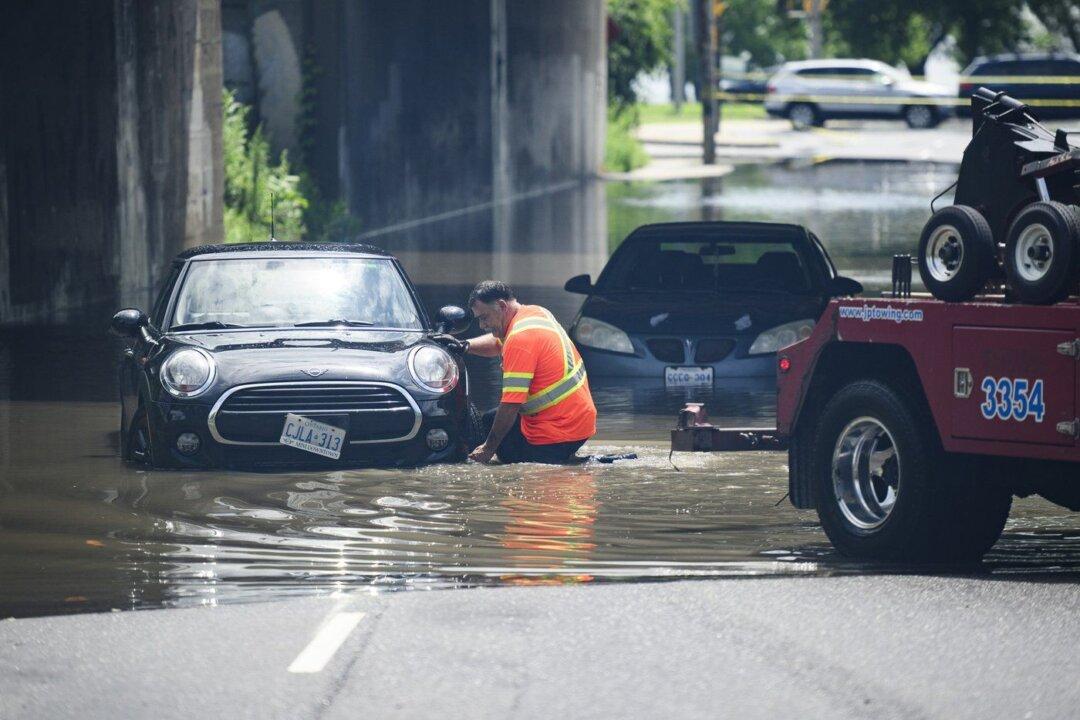Major roads have been reopened following Toronto’s flash-flooding that left drivers stranded in submerged vehicles on the busy Don Valley Parkway on July 16. About 167,000 Hydro One customers had lost power, and more than 4,000 remained affected by outages as of 8 a.m. local time.
It’s being hailed as a weather event rivaling Toronto’s 2013 flooding that caused some $1 billion in damages, according to data from the Insurance Bureau of Canada and adjusted for inflation in 2021.





